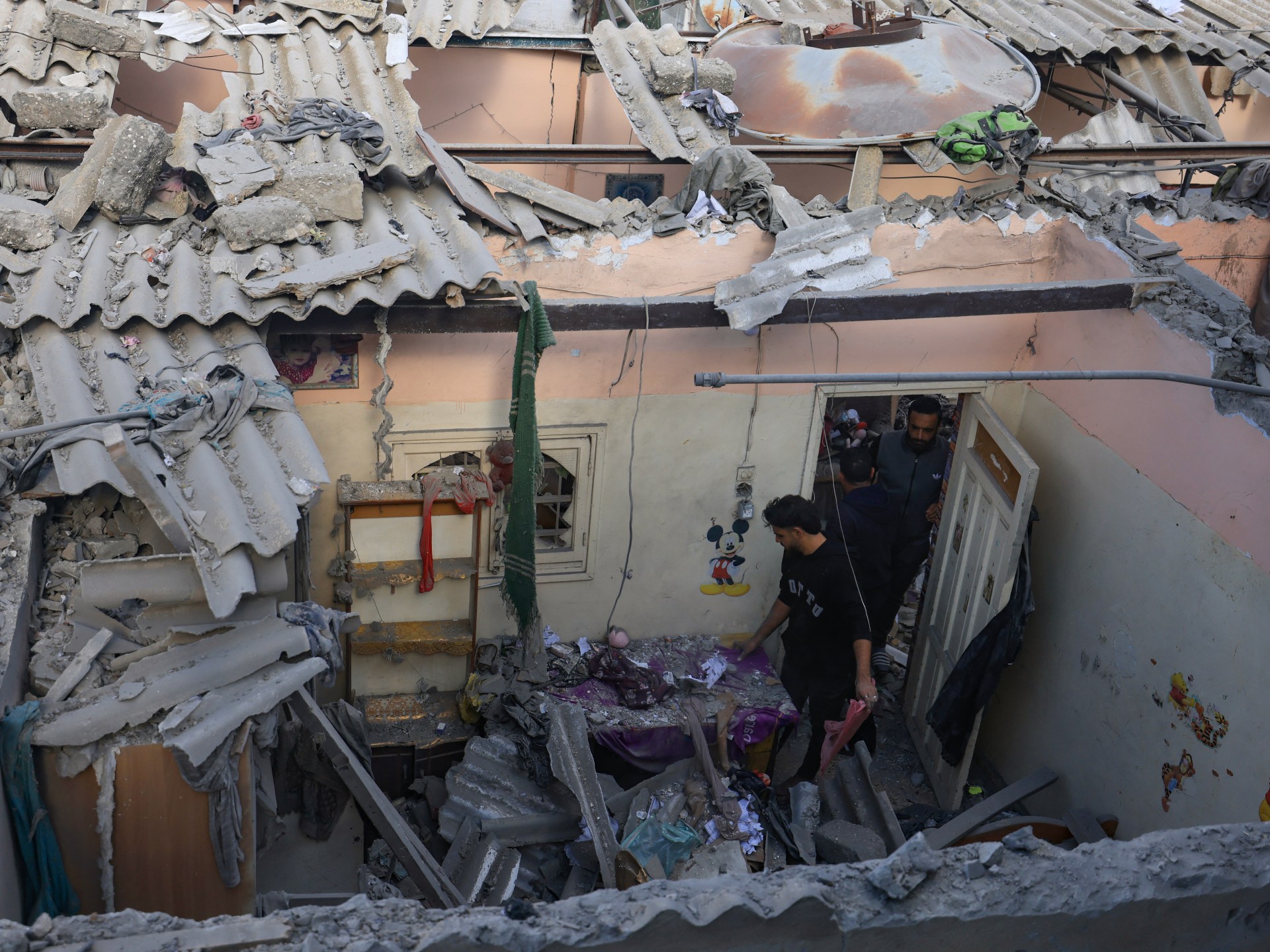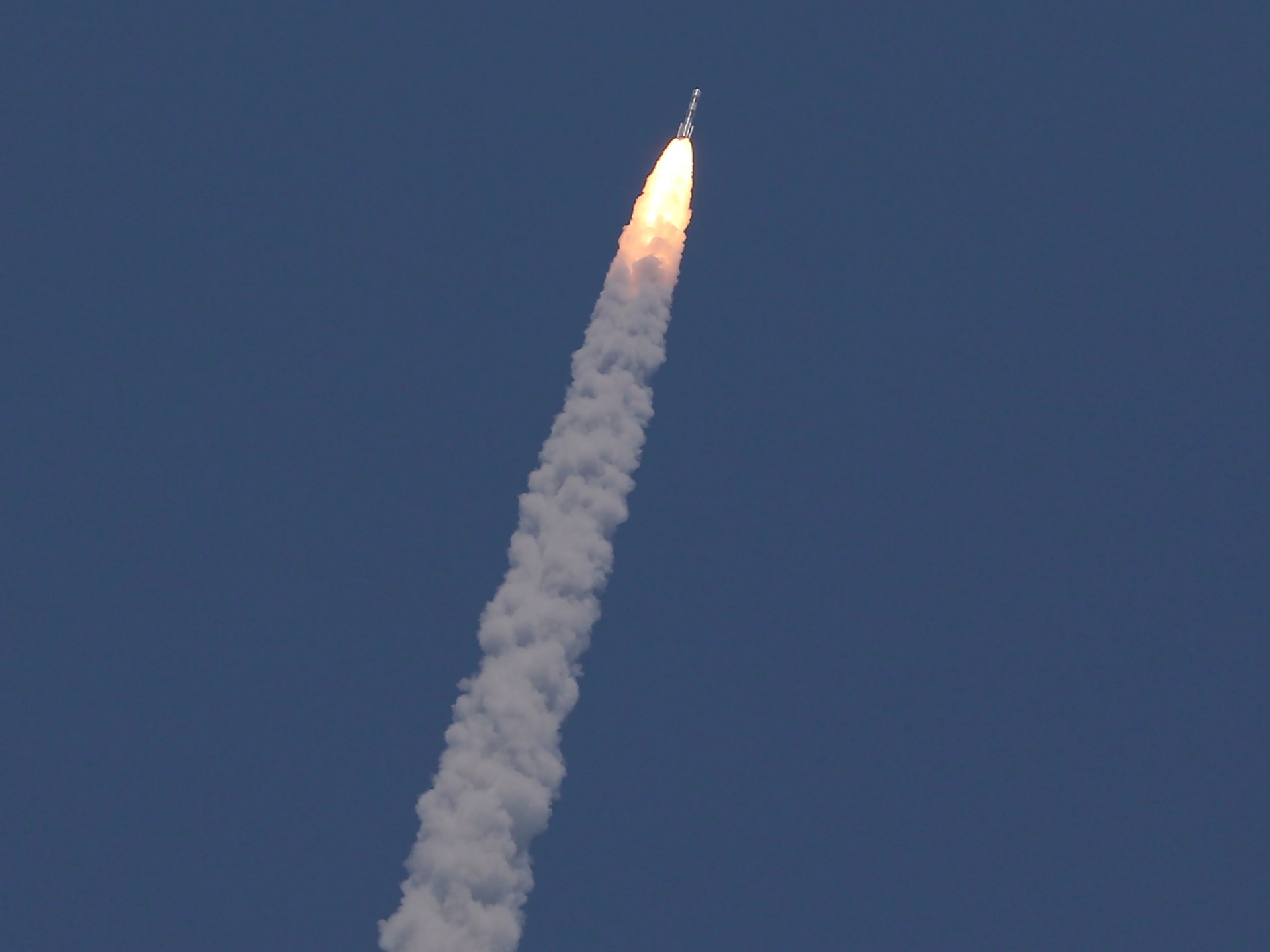How Germany burned its ‘bridge to the Islamic world’ | Opinions
In March 2003, the German Foreign Office established an online platform, named Qantara, which means “bridge” in classical Arabic, in response to the 9/11 attacks in the United States and the hostility they triggered in the West against Muslims. The declared aim of the independent portal, run by German public broadcaster Deutsche Welle, was to “bridge” cultural differences between the West and the Islamic world and provide a neutral platform for interreligious dialogue.
The portal, which publishes content in English, German and Arabic, operated successfully for more than 20 years, seemingly with no editorial guidance from the German government. This changed, however, when it began publishing content critical of German debates on anti-Semitism in the context of the Gaza genocide. Earlier this year, it was announced that Qantara would be restructured, and its management would be transferred from Deutsche Welle to the Institute for Foreign Cultural Relations (Institut für Auslandsbeziehungen – IFA), which is affiliated to and funded by the Federal Foreign Office.
The ministry claimed the move was “purely” structural and unrelated to the editorial direction and output of the site. German Foreign Minister Annalena Baerbock, however, contradicted this claim, suggesting in an interview that concerns about content published by Qantara, particularly content on anti-Semitism, were a factor in the decision.
Following the announcement, 35 members of Qantara’s editorial staff published an open letter addressed to Baerbock, expressing doubt that the IFA possessed the editorial capacities needed for the successful continuation of this complex project, which had been painstakingly built over many years and has proved to be a great source for those interested in the Middle East and Europe’s relationship with it. The letter had no effect, and all editorial staff resigned in protest.
On July 1, the management of Qantara, which no longer had any editorial staff members, was transferred from Deutsche Welle to IFA. IFA said the portal will remain under its editorial control until the new editor-in-chief, Jannis Hagmann, forms a new editorial board and officially begins work sometime in the coming weeks.
This transitional period at Qantara represents a unique opportunity to observe and assess the true views of the German government about the Middle East and its peoples, given that state officials are now openly editing a platform advertised as Germany’s “bridge” to the Islamic world.
Before the change in management, Qantara was respected for its objective, informative, in-depth reporting and analysis on the Middle East and the wider Islamic world, both in Germany and the region itself.
This is no longer the case. Right now, under the editorial direction of the Foreign Office-affiliated IFA, Qantara appears focused not on initiating intercultural and interreligious dialogue and discussion, but on confirming the German government’s biases and prejudices about Muslims, specifically Palestinians, through poorly researched and edited opinion articles.
Perhaps the best example of Qantara’s new editorial stance – and by extension the German government’s true views on the Middle East and its peoples – is an opinion piece, titled “Crisis Communication and the Middle East: Like and Share”, published on July 25.
The op-ed, supposedly analysing the media coverage of Israel’s war on Gaza, by Moroccan-German author Sineb El Masrar, frames Palestinians as an inherently violent and anti-Semitic people who are lying about their suffering, their history, their culture and their political motivations to malign Israel and destabilise Western democracies.
It authoritatively states, without evidence or anything that resembles a supporting argument, that Palestinian journalists reporting on genocide are Hamas operatives in disguise, that images of death and suffering from Gaza are “staged”, that Palestinians hate Zionist occupiers on their land solely because of “Islamic anti-Semitism”, that there is actually no famine in Gaza and the international media are intentionally not publishing photos of “full market stalls and barbecue stations” in the Strip.
The author claims, for example, famine in the Gaza Strip, “according to the recently published Integrated Food Security Phase Classification (IPC) Report, did not and does not exist.” Of course, the report linked in the article clearly states: “While the whole territory [of the Gaza Strip] is classified in Emergency (IPC Phase 4), over 495,000 people (22 percent of the population) are still facing catastrophic levels of acute food insecurity (IPC Phase 5).” The IPC defines Phase 5 in its fact sheet as “famine” and says this ranking is only attributed to an area when it “has at least 20 percent of households facing an extreme lack of food, at least 30 percent of children suffering from acute malnutrition, and two people for every 10,000 dying each day due to outright starvation or to the interaction of malnutrition and disease”.
It seems, according to Qantara and the government officials currently controlling it, even famine as confirmed by the IPC is not really famine when it is happening to Palestinians and is facilitated by Israel.
The blatant distortions of fact in the article do not end there. The author also argues that “Islamic anti-Semitism” was the reason why Muslims in Palestine resisted the Zionist takeover of their lands. She adds, “Unlike Germany, the Middle East itself has never come to terms with its Nazi past.”
This is, obviously, an Orwellian lie that has no place being repeated in any serious journalistic publication. What suggests that the Middle East actually has a “Nazi past” that it needs to come to terms with? Of course, nothing. Nazism is an exclusively Western – and specifically German – ideology with no basis in or connection to the Middle East and Muslim populations living there.
Muslims in the region are prejudiced against not Jews and Judaism – which was itself born and codified in the Middle East and prospered under Muslim rule in various countries across the region for centuries – but the Zionists ruling Israel, who have been killing their loved ones, stealing their land and confining them in heavily policed ghettos for decades.
“The Palestinian issue has been instrumentalised to destabilise Western democracies,” the article further says.
It seems the author, much like the German government, is annoyed that people across the world, including in Germany, are objecting to Israel’s attempt at exterminating an entire people.
So is it really the instrumentalisation of the “Palestinian issue”, whatever that means, that is destabilising Western democracies? Or could it be that facilitating and defending the genocide of the Palestinians is what destabilises them? After all, killing innocents en masse – or providing financial, legal and diplomatic cover for the carnage – is not in line with self-declared values of Western democracies, such as respect for human rights and international law. This is perhaps why the article tries to argue the devastation we are all watching in real time in Gaza is somehow “staged” – the German government needs it to be staged to keep telling the people that it has the moral high ground.
With this one article, published under the editorial control of a Foreign Office-affiliated institute, the German government burned its “bridge” to the Islamic world. That the article is still up on Qantara, without any correction or clarification – even to correct the most blatant “no famine” lie – after significant backlash from its supposed target audience, suggests Germany has lost all interest in initiating dialogue with the Islamic world. It wants the platform to basically abandon all journalistic integrity, and publish content that supports – at any cost – the government’s foreign policy.
Why is this?
It seems since the beginning of Israel’s genocide in Gaza 10 months ago, the opinions, thoughts and aspirations of the Muslim world, and the wider Global South, do not matter to the German government. It is not interested in any dialogue or discussion, it only wants to continue with its existing foreign policy towards the region, which cares about one thing and one thing alone: cleansing itself of the burden of the Holocaust in the eyes of fellow Western nations through defending Israel unconditionally and framing those resisting Israeli abuse as modern-day Nazis. Thus, it labels Palestinians, and by extension all Muslims defending them, as “Nazis”.
Qantara’s incoming editor, Jannis Hagmann, said in a recent interview that he and his team, once they officially start work, will not allow themselves to be “interfered with in terms of content, neither by the IFA nor by the Foreign Office”.
He said he was “annoyed” by El Masrar’s offering and that “the article would not have appeared in this form under the new Qantara team”.
Perhaps he will be proven right, and once the new team takes control, we will see a return to old Qantara, where articles like El Masrar’s would not find themselves a place on the homepage. Yet, once a bridge is burned, it takes time and significant effort to rebuild it. The platform is now facing an uphill battle to prove it is more than a government propaganda outlet.
Whatever the future brings, however, this transitional period in Qantara, and El Masrar’s article, already taught us a lot about the German government and its approach to the Middle East. They showed us that the German government sees Israel as a righteous and moral entity even when it commits genocide, and the Muslims as anti-Semitic, simple but manipulative hordes hell-bent on destabilising Western democracies.
And this, however upsetting, is indeed valuable information if we are to understand and counter the German response to Israel’s ongoing genocide in Gaza.
The views expressed in this article are the author’s own and do not necessarily reflect Al Jazeera’s editorial stance.
Check out our Latest News and Follow us at Facebook
Original Source







